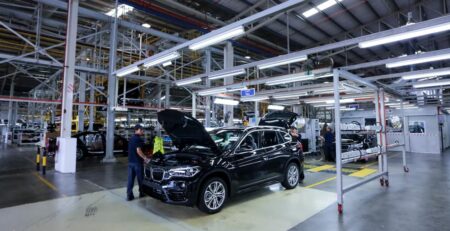Dealership Trends in the New Year
The automotive industry is emerging from one of its most challenging periods, catalyzed by the global pandemic. As it regains momentum, the sector braces for challenges like chip shortages and economic slowdowns while embracing significant innovations.
Understanding Automotive Industry Trends
Automotive industry trends encompass the evolving developments within the sector that significantly influence vehicle design, production, marketing, and use. Technological advancements, consumer preferences, regulatory changes, and global economic scenarios shape these trends.
They are dynamic and critical for stakeholders in the automotive sector to remain competitive. Key focus areas include electric vehicles, autonomous driving, connectivity, sustainability, and evolving sales and distribution models.
Trends From Last Year
There was a significant surge in production in the past year as shortages and back orders were slowly resolved. While the coming year is still expected to see growth, it will be significantly lower than last year. Innovation, especially with technology, was a popular trend last year. We saw an increase in certified pre-owned vehicles, with many people seeking pre-owned vehicles and purchasing them online.
Seven Notable Automotive Trends in the New Year
The automotive landscape for the coming year is poised for a transformative phase, facing global challenges like energy crises and supply chain issues. Despite these, the industry is set to maintain steady global vehicle sales with notable trends:
Digital Vehicle Production
Automakers are integrating more digital technology into vehicles, leading to competition in developing automotive software and systems. This results in digitally advanced electric vehicles.
Growth in Online Sales
Automakers in North America and Europe are increasingly offering online vehicle purchasing options. This trend is expected to expand, allowing customers to select features, secure financing, and experience virtual test drives remotely.
Preference for Pre-owned Vehicles
There’s a growing demand for pre-owned vehicles, especially those with recent technologies but lower costs than new models. Certified pre-owned programs make these vehicles even more appealing.
Connected Cars Expansion
The rise in connected cars continues, offering Internet connectivity and various on-demand features. This includes remote diagnostics and vehicle health reports, with growth anticipated in predictive intelligence and maintenance technologies.
Autonomous Self-Driving Cars
Autonomous vehicles are becoming more prevalent, known for safety, efficiency, and last-mile delivery improvements. The trucking industry, in particular, is expected to see significant adoption of this technology.
Fuel Cell EVs Breakthrough
This year could be pivotal for fuel-cell electric vehicles, with their faster recharge rates, extended range, and zero emissions. Major automotive players are investing in this technology, supported by leading countries.
Collaborations with Tech Companies
Automakers are increasingly partnering with tech companies to meet the evolving technological needs of electric, connected, and autonomous vehicles. These collaborations are essential for developing the required software and systems for future vehicles.
How a Dealership Management System can Keep You Ahead of the Trends
The automotive industry is set to experience exciting transformations, addressing challenges and capitalizing on technological advancements. Dealerships should stay informed of these trends to navigate the evolving landscape successfully.
While new, innovative vehicles reach the market, dealerships need a comprehensive and seamless way to manage that inventory. A dealership management system is instrumental in keeping your dealership ahead of industry trends by offering data-driven insights for informed decision-making and integrating CRM programs to personalize customer interactions.
It also supports integration with online platforms, catering to the trend of digital vehicle shopping and broadening market reach. A DMS boosts operational efficiency and provides market trends analytics, helping dealerships quickly adapt to regulatory changes and emerging technologies like electric and autonomous vehicles. A DMS ensures dealerships remain competitive and responsive to market trends and customer preferences.
Welcome New Trends With Workflow 360°
When choosing a DMS, Workflow 360° offers a comprehensive solution that is flexible enough to meet the unique needs of your dealership. With a focus on fluid communication connecting all the departments of your dealership, Workflow 360° can provide you with the tools to have a streamlined workflow, ultimately leaving your customers with a great first impression and overall experience when they choose you.











